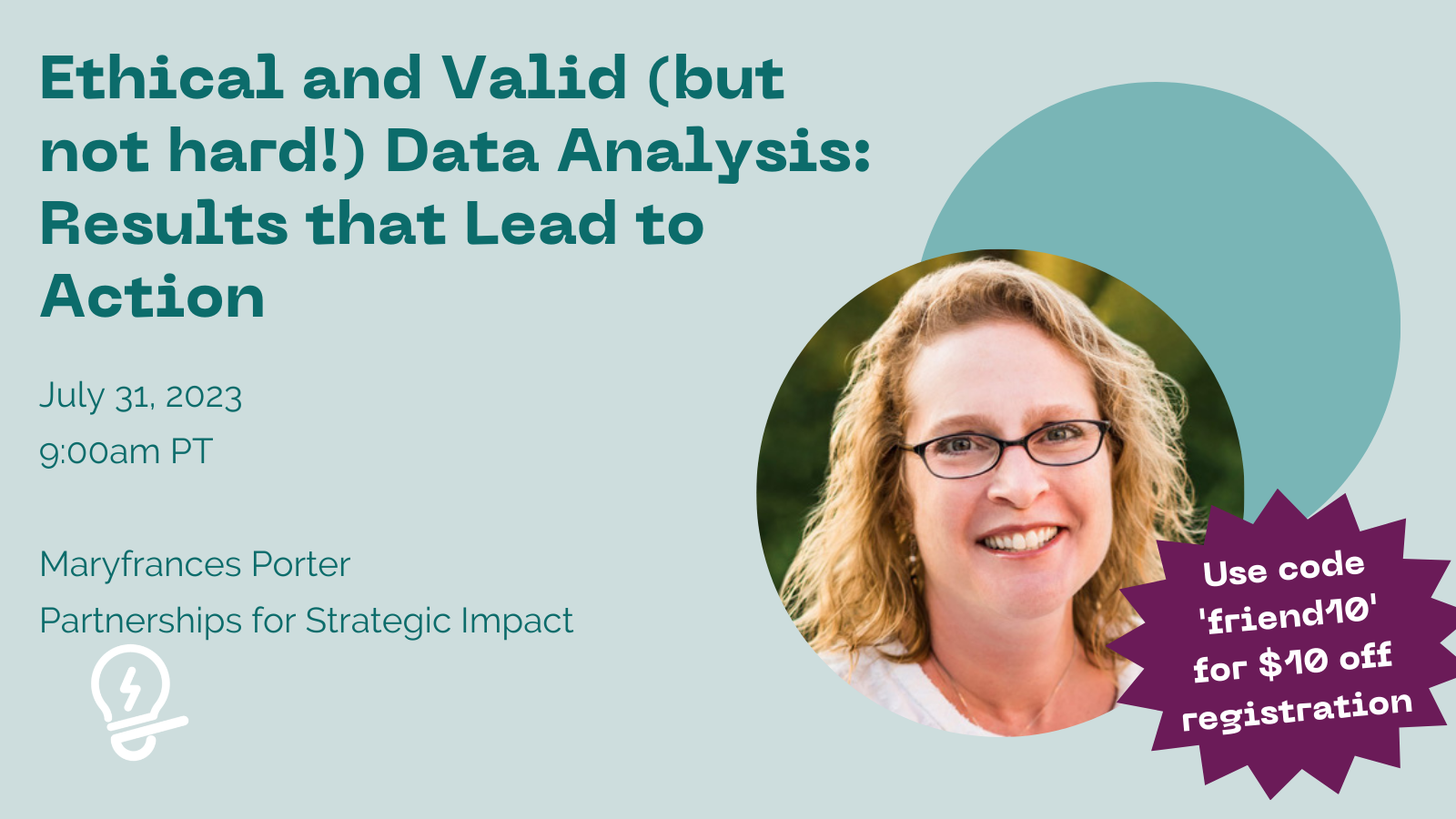Equitable and Valid Surveys and Data Analysis Any Nonprofit Can Do: Straightforward Program Evaluation that Leads to Action
June 10 & 17, 2024
1:00 – 2:30pm EST on Zoom
Collecting and talking about impact can feel complicated, expensive, and overwhelming for nonprofit leaders. Data collection can get in the way of service provision, and dedicating the time and resources for program evaluation can feel impossible. Until recently, there has not been a straightforward, affordable, and sustainable strategy which even small nonprofits can use to track impact and tell powerful impact stories. This two-day series will introduce the ImpactStory™ Strategy as an accessible and actionable way to collect and use data to move people to action.
Day one will focus on how to create and use surveys to most equitably and effectively capture the immediate impact clients get from working with your organization. You will get an opportunity to practice writing survey questions that zero in on the most important information to gather.
Day two will focus on how to validly and responsibly analyze and graph survey data so it can be understood and used to improve programming, realign resources, and communicate impact to stakeholders and funders. You will get an opportunity to use sample data to draw conclusions and plan needed action.
A survey template and sample Excel analysis file will be provided as take-home resources.
What The Training Will Cover
Day 1:
-
The difference between surveys, polls, tests, and needs assessments
-
The seven most critical questions to ask clients about impact
-
How to develop equitable and culturally responsive surveys for your organization
-
A toolkit of do’s and don’t’s for wording surveys and creating response scales
-
How to fold surveys into service provision so they do not feel like “extra” work
Day 2:
-
How to prepare data for analysis in Excel
-
The three critical Excel formulas and two calculations you need to master, as well as the two graphs you must know how to create
-
Tips on data analysis techniques that can reduce bias and increase understanding
-
A process for responsibly and inclusively understanding the data
-
How to use this understanding to plan action


